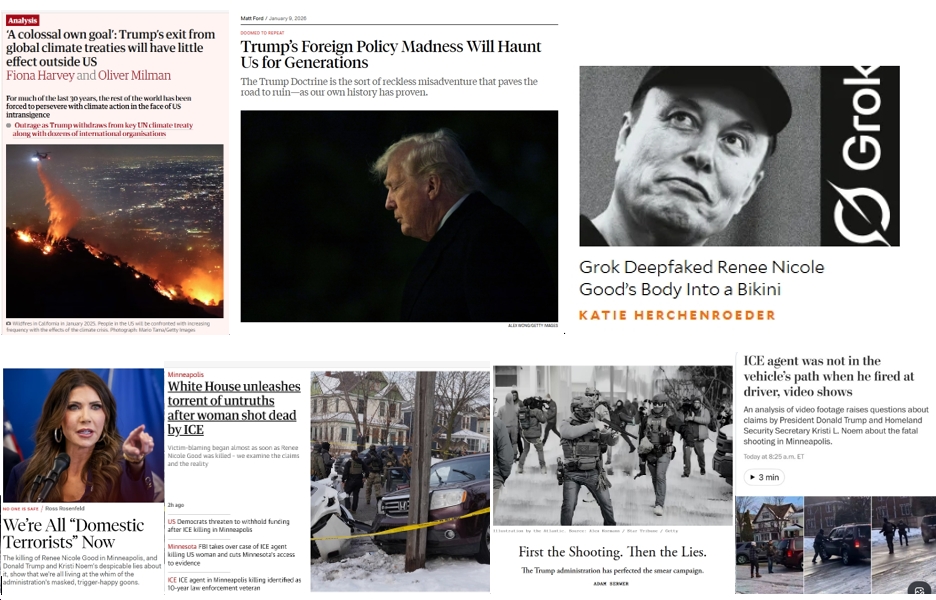From FWIW Virginia (You can sign up to receive their national newsletter, FWIW, here.)
 |
About last weekend’s VA GOP convention sh*tshow…
Also inside: the latest Dem primary spending numbers
Welcome to the newly re-launched FWIW Virginia, where we analyze digital spending trends on both sides of the aisle in the 2021 Virginia statewide and legislative elections. Each week, we look at how campaigns are investing in digital engagement and the online tactics they use to reach voters across the Commonwealth. Was this email forwarded to you? Click here to subscribe.
Last weekend, the Virginia Republican party held an “unassembled convention” to pick their nominees for Governor, Lt. Governor, and Attorney General. Convention delegates waited in long lines, vote counting took days due to ranked-choice voting, and candidates went as far as sending their own “security guards” to stand outside of the ballot room 😂 but after delays and drama, the GOP selected their statewide ticket.
How did the Republican primary for those statewide offices play out online? And how are Democratic statewide campaigns ramping up their digital outreach ahead of the June 8th primary? Could statewide races in Virginia really be competitive this year? We take a look in the inaugural issue of #FWIWVA.
But first…
2021 by the Numbers
After the Democratic primaries wrap in early June, we’ll be tracking cumulative digital spending in competitive elections for the House of Delegates and statewide offices. In the meantime, we’ll be sharing numbers from specific races and keeping an eye on the Democratic primary week over week.
FWIW, here’s how much the Democratic candidates for Governor, Lt. Governor, and Attorney General have spent on Facebook and Google ads so far this year:
Former Gov. Terry McAuliffe continues to far outpace the competition in terms of polling, fundraising, and spending – and he’s also crushing the digital game, not taking anything for granted and investing big in reaching voters online. Over the past week, he’s spent 16x as much on Facebook and Google as the next biggest digital spender in the field, Del. Jennifer Carroll Foy. Nationwide, the McAuliffe campaign was the number one spender on Google advertising last week.
Some of his most recent ads urge voters to request their ballots, use Trump’s endorsement of the Republican nominee to fundraise, and feature general election-style ads on policy.
Look, we know that Facebook and Google ads aren’t everything, but if McAuliffe’s rivals are to have any hope of catching up with him (and run a successful general election campaign) now would be a good time to start ramping up their efforts online.
In the Lt. Governor primary, Del. Sam Rasoul is the only Democratic candidate to invest a significant amount in paid digital ads in the crowded field, outspending the rest of the field combined on Facebook and Google. Del. Hala Ayala, who recently picked up the endorsement of current Gov. Ralph Northam, spent $0 on outreach on Facebook and Google last week, and has barely spent a dime on the platforms this year. For one of the frontrunners in terms of money and endorsements, this comes as a surprise, especially in a downballot statewide primary where grassroots fundraising and building name ID as quickly and cheaply as possible is the name of the game.
Del. Jay Jones, who is challenging incumbent AG Mark Herring, has been ramping up his digital operation over the past few weeks, expanding his advertising spend on Facebook and Google to build his name ID. Herring, meanwhile, isn’t anywhere to be found in terms of paid digital ads.
Jones has a long way to go in the last month of the primary to get in front of voters, but his recent endorsement from Gov. Northam could help. Unseating an incumbent in a statewide primary is never easy, but Jones is a good candidate running a solid campaign with a significant advantage in his digital program – this race could become one to watch in the closing weeks of the primary.
The GOP Convention Sh*tshow 👀
The 2021 GOP Convention is officially over, and the dust has finally settled on a truly batsh*t crazy race for the party’s statewide nominations. For a party that hasn’t won a statewide election in years, selecting nominees by excluding as many voters as possible was certainly a bold move. 53,914 Virginia Republicans registered as delegates and were able to vote in this year’s convention, which is far from the 366,274 that voted in the 2017 GOP primary for Governor.

Meanwhile, in Va guv’s race, @GlennYoungkin posted his own guard outside ballot room. Guard falsely claimed he’d been sent by RNC but eventually confessed. Hotel security booted him. washingtonpost.com/local/virginia…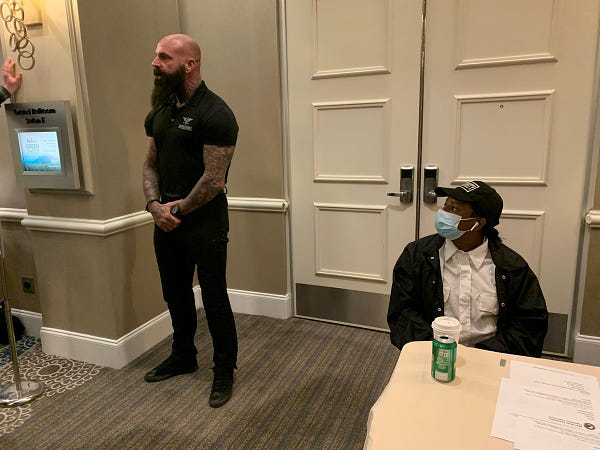
In the race for Governor, former investment firm CEO Glenn Youngkin won the GOP nomination as a first-time candidate after spending $5 million of his own money en route to winning 6,868 weighted votes in the final round of ranked-choice reallocation.
Youngkin probably represents the best possible outcome for the Virginia GOP, as the party avoided disaster in nominating hard-right Sen. Amanda Chase and by narrowly escaping a Pete Snyder nomination, whom Chase pledged to run as a third-party candidate against if he had won. With deep pockets, no voting record to attack, and a relatively pleased base, Youngkin has a real shot at making the race competitive, but a surprise endorsement from former President Donald Trump may not help the start of his general election campaign (or does it?).
Throughout the entire campaign for the nomination, Youngkin significantly outspent his Republican opponents on Facebook, getting his content in front of more delegates in the final stretch.
Youngkin hasn’t exactly built his candidacy on moderation – during the primary, he doubled down on his far-right bonafides by leaning into the Big Lie by promising to “restore confidence in the integrity of our elections,” promoting his hit on Tucker Carlson where he railed against teaching how race interacts with law and society, and touting his endorsement from Sen. Ted Cruz. Clearly, he wasn’t afraid to pander to the GOP base, but the real question is whether swing voters can look past those statements when casting their votes in November.
For Lt. Governor, the Virginia GOP selected former Del. Winsome Sears, who beat out Del. Glenn Davis and former Del. Tim Hugo for the nomination. Hugo, Sears, and Davis all invested in paid Facebook ads in the final week before the convention, but Sears was the only candidate in the race to invest in paid Google search ads as well.
Sears, a former Marine who served one term in the House of Delegates before launching an unsuccessful bid against Congressman Bobby Scott, is the daughter of Jamaican immigrants and would be the first black woman elected to statewide office in Virginia. However, like Youngkin, Sears is also very conservative and leaned heavily on her pro-Trump bonifides in her final appeals to convention delegates.
Completing the GOP ticket is Del. Jason Miyares, who narrowly beat out hard-right candidate Chuck Smith for the GOP nomination for Attorney General. (Let’s be honest, they’re all hard-right these days…) Here’s how much the AG candidates ended up spending:
Miyares has a strong electoral record, outrunning Trump’s 2020 margin by nearly 15 points in his Virginia Beach-based HD 82. His creative focused on typical “law and order” and “back the blue” dog-whistles, with some GOTV/mobilization ads in the mix as well.
In all, the GOP convention went about as well as Virginia Republicans could hope for. With a self-funder at the top of the ticket, potentially giving the Virginia GOP the resources they’ll need to walk a narrow statewide path to victory. However, Youngkin-Sears-Miyares present voters with a far-right, MAGA-embracing ticket in a state that backlashed hard against Trump, and while that may drive GOP turnout in rural Virginia, it also may be too much for suburban swing voters in NoVA to look past.
Thanks for reading this week’s FWIW Virginia! We’re so excited to be back following these critical elections in the Commonwealth. If you enjoy reading this type of content each week, we hope you’ll support our work by clicking share and tweeting out this newsletter below! As always, email us with ideas of what you’d like us to dive into next.
You can also sign up to receive our national newsletter, FWIW, here.
If you liked this post from FWIW Virginia, why not share it?

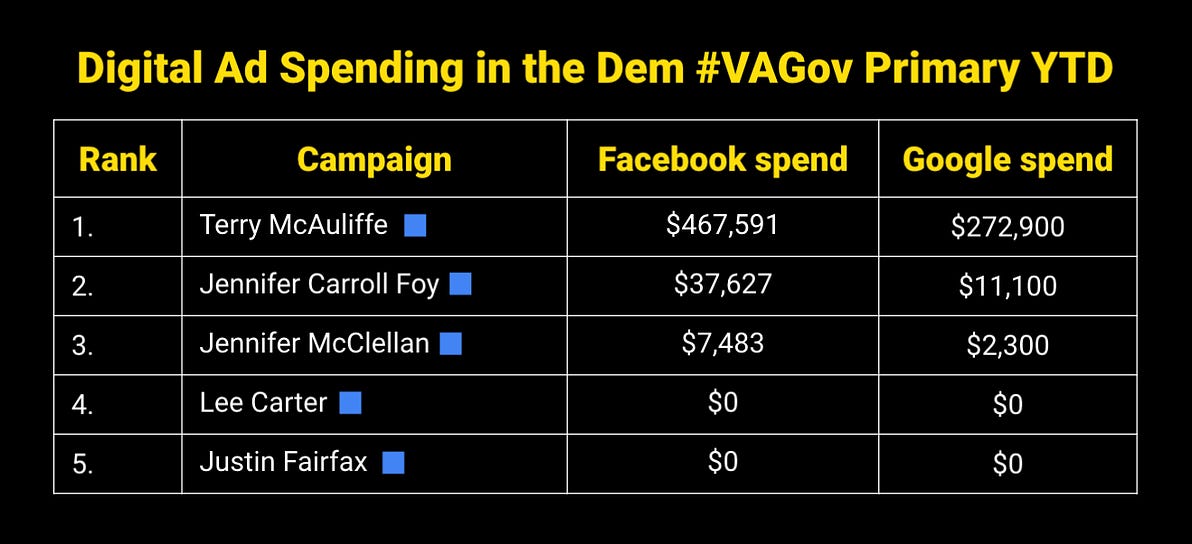
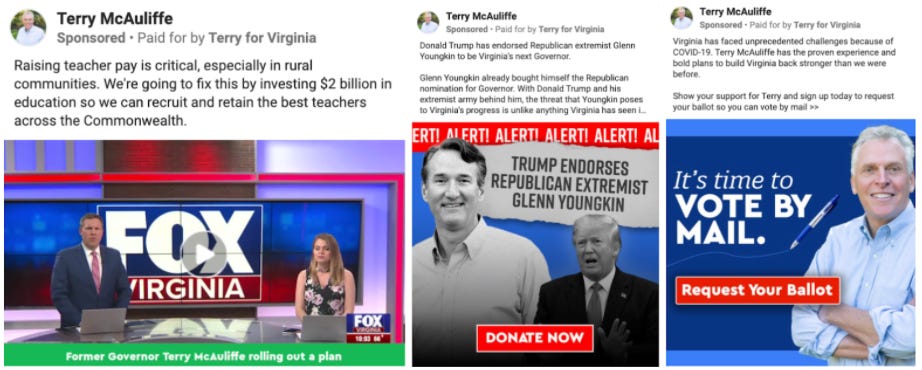
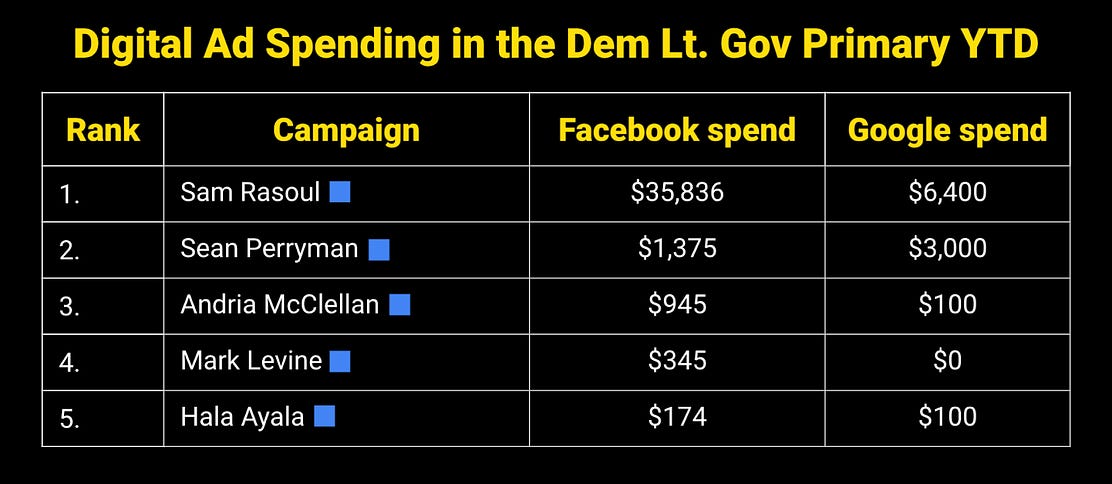

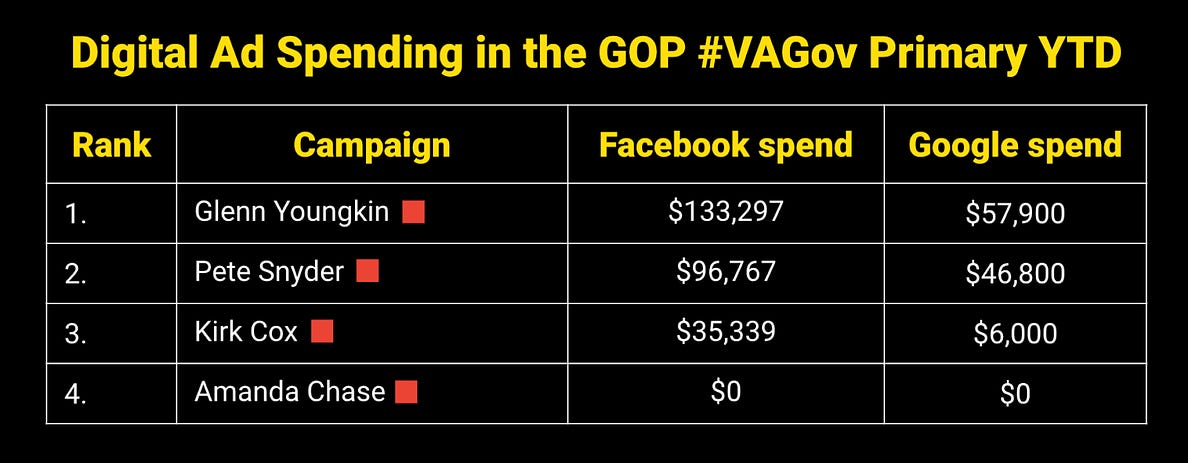
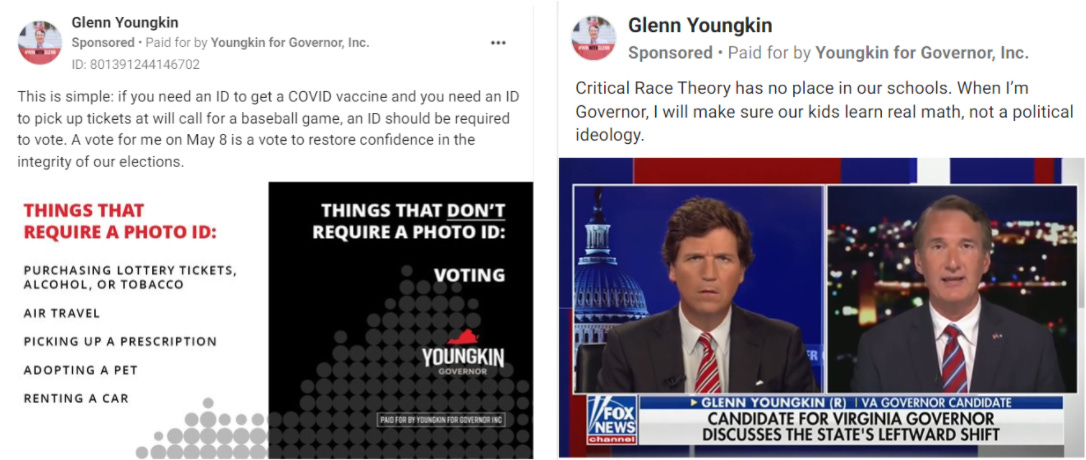
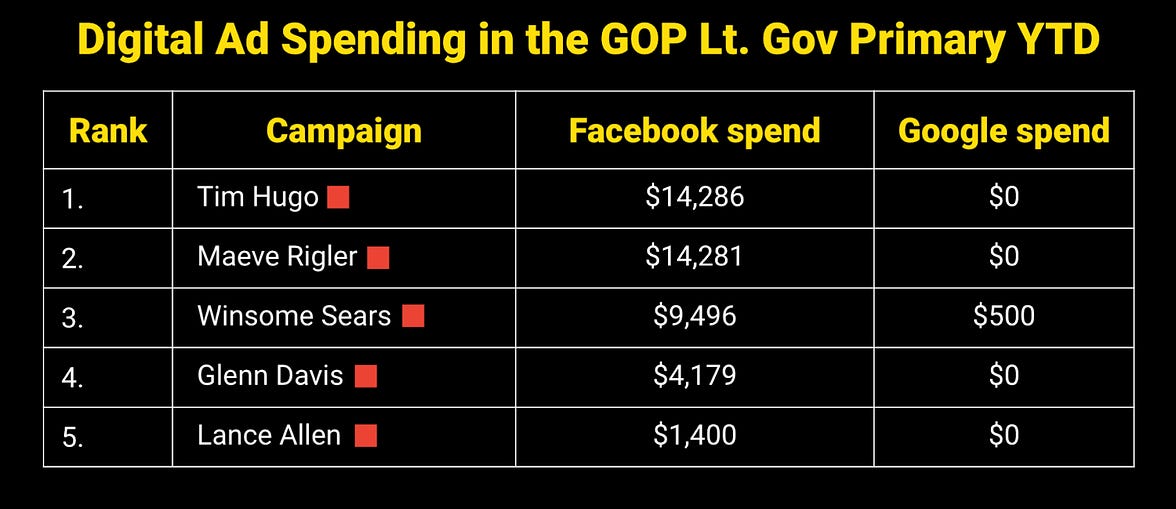

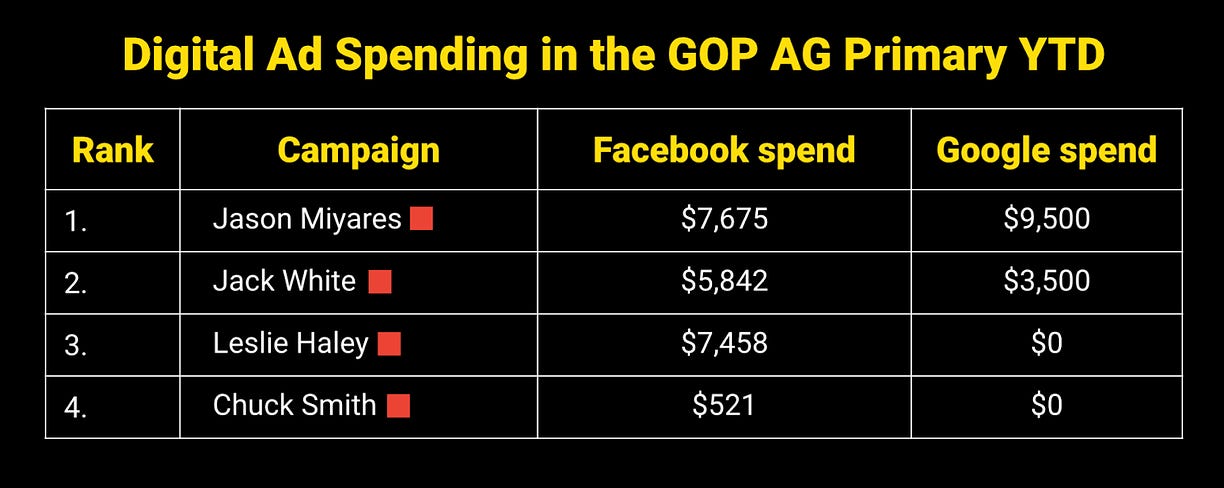
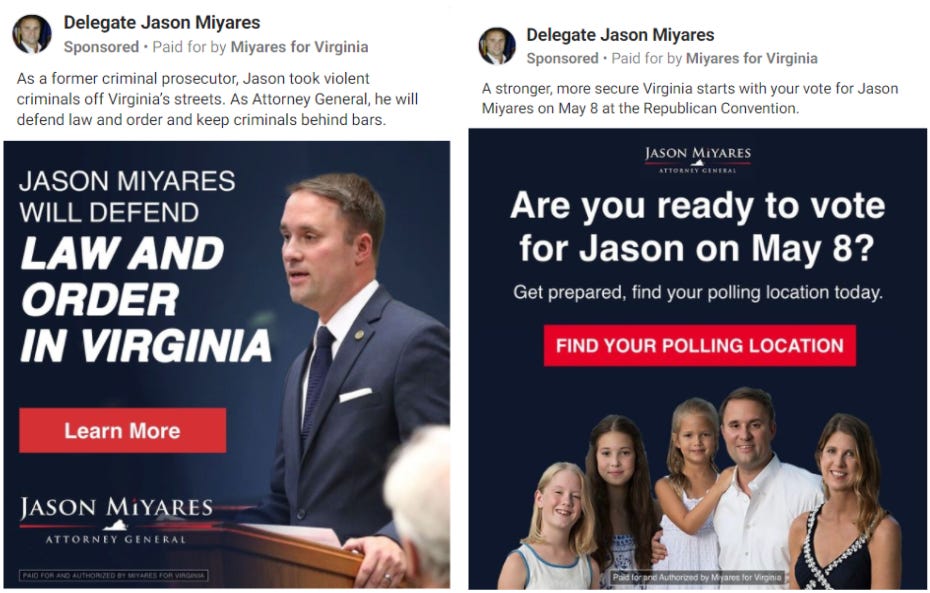


![Saturday News: “Trump’s latest tariff TACO probably won’t make your life more affordable”; “The Epstein Email Cache: 2,300 Messages, Many of Which Mention Trump”; “[MTG] questions if Trump is still the ‘America First’ president”; “Jim Ryan tells all: ‘What did the Governor know, when did he know it?’”](https://bluevirginia.us/wp-content/uploads/2025/11/montage1115.jpg)


